
Sustainability
Private sector driving climate action at COP25 BINGO Day
Private sector climate action and innovation was on full display at the Business and Industry Day (BINGO) at COP25 in Madrid.
As the business and industry ‘Focal Point’ at the United Nations Framework Convention on Climate Change (UNFCCC), ICC is the central voice for business at COP 25. In this capacity, ICC hosts the official COP 25 Business and Industry Day (BINGO Day), offering a forum for constructive public-private dialogue on how to lead for a net zero emissions future.
Here are eight takeaways from the discussions at this year’s event:
High Level support for business ambition
In his opening remarks, Ambassador Luis Alfonso de Alba, the UN Special Envoy for the 2019 Climate Action Summit recognised the unprecedented mobilisation of the private sector in support of bold climate ambition. Mr de Alba identified several business-led initiatives, such as the Our Only Future Pledge and the Chambers Climate Coalition, as examples of concrete action.
Calling upon business to keep up the momentum ahead of COP26, Mr de Alba said: “Without business, … we will never achieve the goals of keeping temperature increases below 1.5 degrees. This is only the beginning – we are just getting on track.”
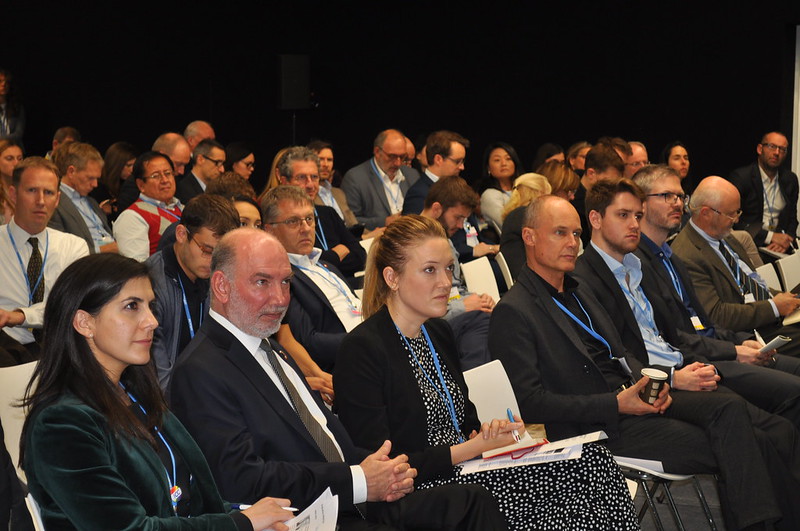
For her part, Clare O’Neill, COP26 President-designate, emphasised the need for an immediate and unified commitment from business, government and civil society to collectively raise climate ambition. In response to the critical findings of the IPCC Special Report on 1.5°C of Global Warming, Ms O’Neill cited advances in carbon neutral legislation, digital technology, and alternative energy sources, as encouraging signs of ambitious climate policies.
Ahead of COP 26, Ms O’Neill is encouraging business and government to build from this existing progress and to continue to advance climate ambition. “The world is expecting us to deliver progress [and] to move from rhetoric to reality,” said Ms O’Neill.
The high-level opening concluded with inspiring remarks by Bertrand Piccard, Chairman of Solar Impulse Foundation, who stressed the need for practical solutions from business, as well as the need for leading businesses to motivate other members of the private sector to raise their climate ambition. “We need to address those who are not in the room [and] how we do that is [through] profitability and job creation. We need to speak their language and motivate them,” said Mr Piccard.
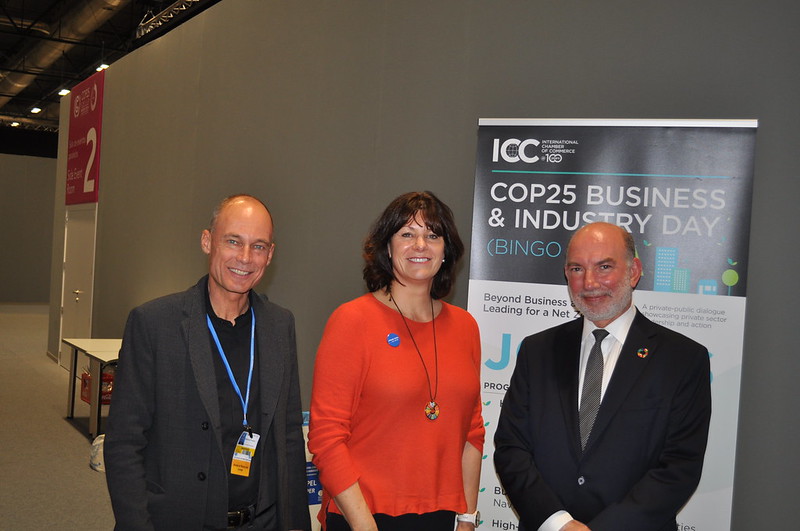
We need to go further and faster
While more businesses than ever before are taking bold climate action, panellists acknowledged that more is needed and the pace of change must accelerate.
Kaj Torok, Chief Sustainability Officer, Max Burgers, challenged businesses to go beyond carbon neutral and become climate positive. Claus Stig Pedersen, Head of Global Sustainability and Public Affairs for Novozymes, said that the unprecedented mobilisation that we are seeing from business is a concrete signal to governments that the private sector is ready, willing and able to work with governments to deliver a good future for people, planet and the economy.
Kay Harrison, New Zealand’s Climate Ambassador, speaking of the leadership behind New Zealand’s Zero Carbon Act, underscored the need for the public and private sector to work together, stating: “Engagement is absolutely critical, not especially with the private sector, but absolutely with the private sector.”
Jahan Chowdury, Country Engagement Director, NDC Partnership Support, agreed with the need to engage all stakeholders, saying that national climate plans should not be developed in isolated silos, but through integrated conversations between business and government. “A synchronised dance between government and the private sector is needed,” said Mr Chowdury.
Shari Friedman, Senior Strategy Officer, Climate Business Department, International Finance Corporation (IFC) shared how the IFC was working to be a bridge between governments and business to help accelerate the pace of change. As an example, Ms Friedman highlighted the work of the IFC on the Scaling Solar initiative , as a one-stop-shop to help governments mobilise privately funded grid-connected solar projects at competitive tariffs that can be operational within two years.
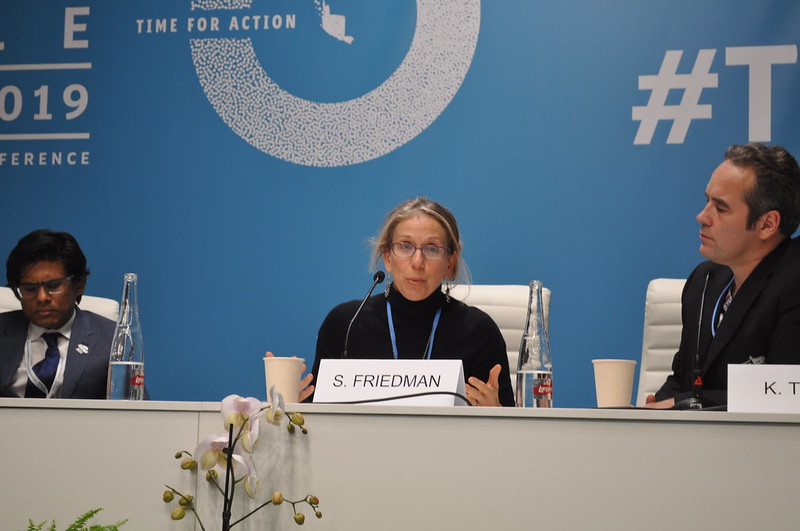
Article 6 – a pathway for reduced emissions
Since the opening of COP25, Parties have been working tirelessly toward the effective implementation of Article 6 of the Paris Agreement. The second panel of the day on the Value of Article 6: Lessons from research and practice gathered representatives from academia, business and law to discuss the design and implementation of Article 6. The session, organised by the International Emissions Trading Association (IETA) and Electric Power Research Institute (EPRI), presented new research on international emission reduction cooperation.
During his analysis on the economic implications of Article 6, Leon Clarke, Research Director, Center of Global Sustainability at the University of Maryland, argued for the necessity of dynamic incentive systems to inspire greater climate ambition. For Mr Clarke, the implementation of Article 6 would increase efficiency for business and governments through the creation of measurement and reporting frameworks.
Similarly, Steven Rose, Senior Research Economist, Electric Power Research Institute, explained that that the implementation of Article 6 would open new doors for international cooperation and reduce global emissions over time. International cooperation can reduce societal costs and bring real value to citizens, said Mr Rose.
With the implementation of Article 6, governments and business can work together to create standards, according to several participating panellists. Most notably, Alex Hanafi, Director, Multilateral Climate Strategy and Lead Counsel, Environmental Defense Fund, asserted that the Article 6 negotation process can establish rigorous standards for carbon emissions that he said, would give confidence to markets, investors and the public, that everyone is [abiding] by the Paris Agreement.”
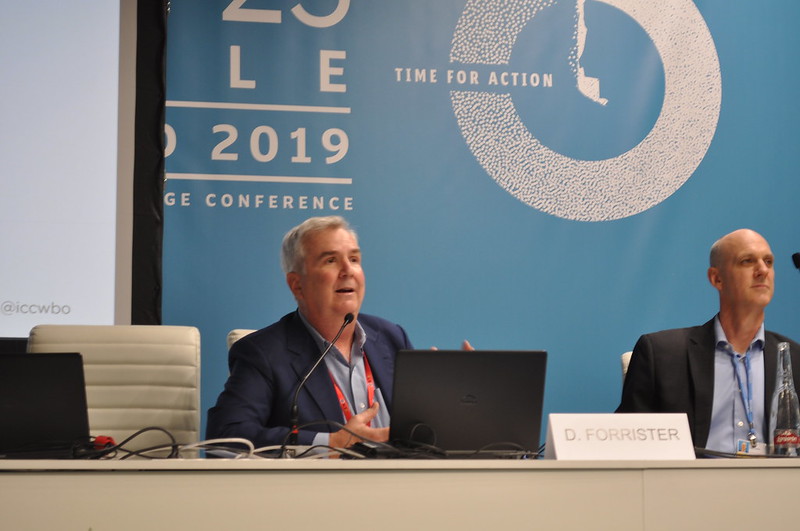
Carbon pricing: a market-based solution
Business called on government to implement robust carbon pricing mechanisms, aligned with the Paris Agreement, to redirect investments into low-carbon solutions.
As a key force behind the World Bank’s Carbon Pricing Leadership Coalition, Jeff Turner, Vice President of Sustainability, Royal DSM, explained that the global carbon market is currently fractured with separate schemes operating in different jurisdictions with varying prices. He stressed the importance of Article 6 as a gateway toward the creation of a global emissions-based trading system that was cooperative and less disjointed.
In response to a question on the future of carbon pricing systems, Dirk Forrister, President and CEO, IETA said: “There is a real concern about these tools being used for purposes that don’t help.” Mr Forrister said markets have to bolster and amplify efforts to achieve the Paris Agreement goals and that to do this new, more robust rules should be agreed by nations. “Let’s learn from past lessons, or it will just be copy and paste from the old rules that don’t work,” he added.
Earlier in the week on the sidelines of COP 25, ICC hosted a trade and climate consultation on carbon pricing.
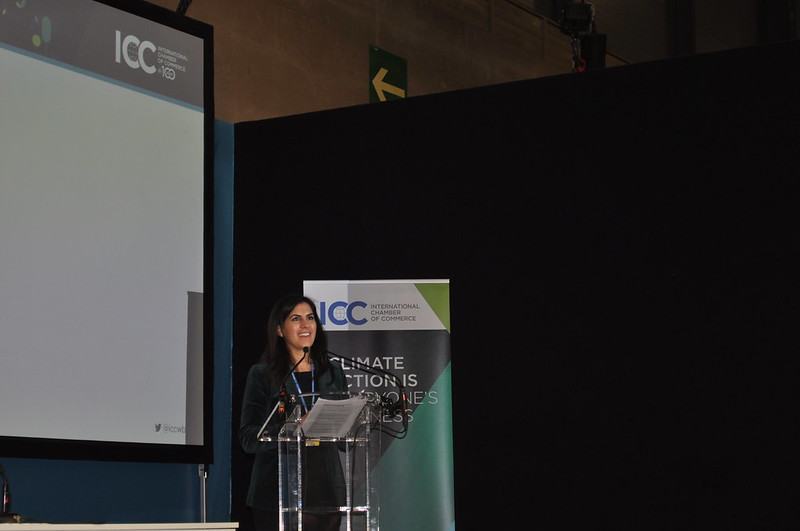
Business must be resilient in the face of climate change
As part of the day’s final panel on Business climate resilience: navigating the risks and opportunities, Pierre Rousseau, Strategic Advisor, Sustainable Business, BNP Paribas, highlighted the important role of finance and the recommendations of the Task Force on Climate Related Financial Disclosures (TCFD) to help companies prepare not only for the physical risks of climate change but also for the transitional risks, such as policy and regulation shifts.
The session also highlighted the urgency of the climate emergency with a clear call to action to all stakeholders to collaborate and deliver climate resilience at scale. Maria Mendulice, Managing Director, World Business Council for Sustainable Development, said: “The biggest risk for business in this face of the climate crisis is the risk of inaction on climate change.”
We must ensure a just transition
In the pursuit of transforming industry, panellists underscored the importance of ensuring a just transition that has people, community and jobs at its heart and leaves no one behind.
Strong examples came from Chile and France, where speakers demonstrated the impacts of societal action when there is no clear and transparent communication between governments and business to society. Monica Araya, Founder and Executive Director of Costa Rica Limpia, underscored the importance of having empathy for excluded members of society, and the need for governments, business and all other stakeholders to work collaboratively to deliver solutions to society’s biggest problems.
Helen Mountford, Vice President for Climate and Economics, World Resources Institute, who served as the panel moderator, reiterated this call for a just transition. Business and government need to ensure better access to key goods and services, so that no one is left behind as part of this transition to a low carbon economy, according to Ms Mountford.
Read ICC’s recommendations for achieving a just transition.
Finance remains critical
Ensuring that business and government contribute to the funding of a net zero emissions future was another key takeaway from the day. Most notably, Mr Rousseau described the existence of a financing gap for businesses shifting their operations toward a renewable direction. “Moving away from what you are doing today and moving to a new business [model] creates the need [for] financing mechanisms,” explained Mr Rousseau. From green bonds to investment traceability, business and governments need to ensure that finance tools are in place to guide this transition to a net zero future.
Before COP25, ICC Secretary General John WH Denton AO issued a call for major public policy reforms to scale financing to meet global climate and sustainability challenges.
Read Mr Denton’s open letter to finance ministers.
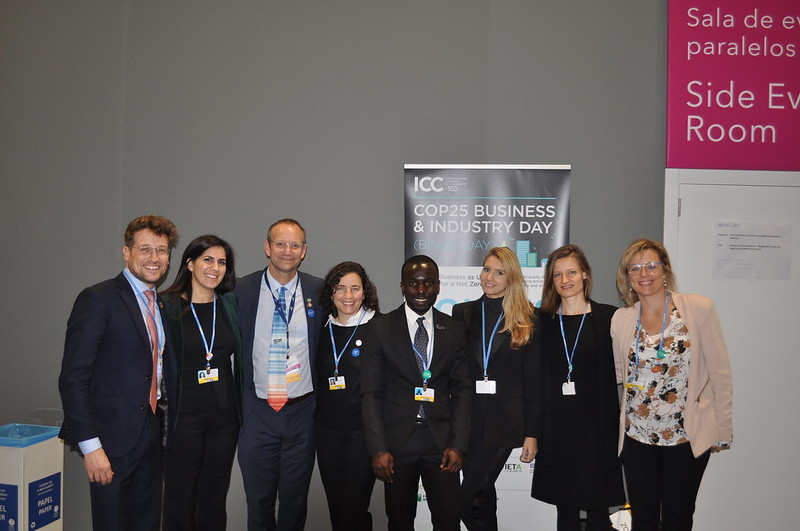
Business must always be problem solvers
During a powerful closing statement, Gonzalo Munoz, Chile’s High-level Climate Champion, implored business to look beyond profit and to work together to advance global climate ambition. At the core of his address, Mr Munroz, stated: “We are in a crisis of empathy”. He called on business to be problem-solvers in the face of two of the most pressing problems – climate change and inequality: “If business is not focused on solving inequality and climate change – they are the problem.”
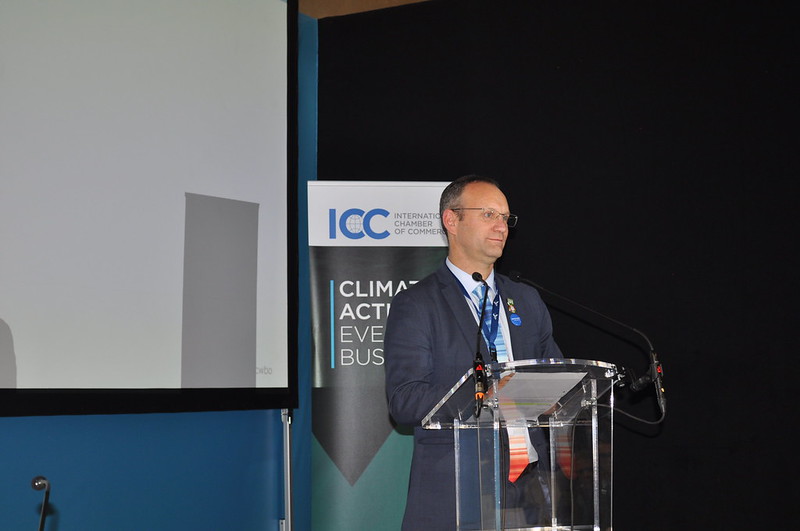
ICC at COP 25
Working with policymakers, business leaders and other stakeholders, ICC is advocating for policy frameworks that address the urgent need to keep the global temperature increase below 1.5°C and transition to an inclusive and sustainable net-zero emissions future.
From daily business briefings to high level negotiations, find out how ICC is mobilising business leaders at COP25 in Madrid.
Read ICC’s key messages and 7 essential reads for COP 25.
